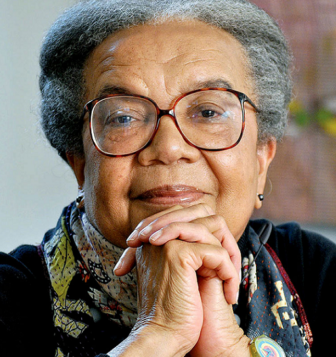Our Purpose
We are a passionate force committed to breaking the cycle of poverty in vulnerable communities. Our mission is clear: to challenge the conventional norms of education and mental health support. We collaborate with various stakeholders, effectively utilizing available resources to craft unconventional programs that bridge gaps within existing systems. We understand the unique challenges impoverished communities face, from low self-esteem to a disconnection from conventional education. In our village, we believe in a holistic approach that encompasses education, mental wellness, and community engagement to empower the next generation.

“The question is not whether we can afford to invest in every child; it is whether we can afford not to.”—Marian Wright

Our Philosophy
At Elite Academy of Academic Excellence, we believe that every child’s learning journey is as unique as their individuality. Our educational philosophy is grounded in the idea that for a child to truly understand and remain deeply engaged in learning, it must be real, relevant, and relatable to their lives.
We embrace the use of simulations as a powerful tool to bridge the gap between academia and real-life experiences. Through simulations, we create dynamic learning environments that mirror the complexities of the world beyond the classroom, allowing students to apply their knowledge in meaningful contexts.
Our approach to assessment is rooted in project-based learning, where students showcase their understanding and mastery by creating projects that blend and connect previously learned standards. This holistic approach fosters critical thinking, problem-solving, and creativity, preparing our students not just for academic success but for a lifetime of meaningful and impactful learning.
At Elite Academy, we are dedicated to nurturing the individuality and potential of each student, providing them with the tools to thrive academically, personally, and as responsible members of their communities. Our commitment to real, relevant, and relatable education sets the stage for a transformative educational experience, empowering students to become lifelong learners and engaged citizens in an ever-changing world.
GENERAL FAQ
Elite Academy has programs catered to children ages 3 to 8.
Elite Academy is dedicated to enhancing learning by imparting practical life skills, executive functioning abilities (including working memory, flexible thinking, and self-control), fostering social-emotional growth, and instilling an appreciation for diverse subjects such as nature, African and Native American history, as well as a comprehensive understanding of fundamental laws and the governmental processes that shape our world.
Communication Skills: The ability to express thoughts and feelings clearly and listen actively.
- Example: Engaging in a show-and-tell presentation in front of the class.
Emotional Regulation: Managing emotions and responding appropriately to different situations.
- Example: Taking deep breaths and counting to ten when feeling angry or upset.
Problem Solving: Identifying issues and finding effective solutions.
- Example: Finding reasonable solutions with limited resources and/or information.
Decision Making: Making thoughtful choices based on available information.
- Example: Choosing between reading a book or doing homework.
Critical Thinking: Evaluating information and making informed judgments.
- Example: Analyzing a story’s plot and characters.
Time Management: Organizing tasks and activities efficiently.
- Example: Using a daily schedule to plan homework and playtime.
Resilience: Bouncing back from setbacks and handling adversity.
- Example: Trying again after failing at a challenging puzzle.
Teamwork: Collaborating effectively with others to achieve common goals.
- Example: Participating in a group project at school.
Self-Confidence: Believing in one’s abilities and feeling self-assured.
- Example: Sharing thoughts and ideas during class discussions.
Self-Care: Taking care of one’s physical and mental well-being.
- Example: Practicing good hygiene and getting enough sleep.
Empathy: Understanding and showing compassion towards others.
- Example: Consoling a classmate who is upset.
Adaptability: Being flexible and open to change.
- Example: Adapting to a new classroom routine.
Money Management: Understanding basic financial concepts, such as saving and spending.
- Example: Saving a portion of allowance money in a piggy bank.
Cyber Security: Safely and effectively using technology and the internet.
- Example: Learning how to recongnize preditors and what to do about cyber bullying.
Conflict Resolution: Resolving disagreements peacefully and finding compromises.
- Example: Mediating a dispute between friends.
Basic Cooking: Preparing simple and nutritious meals or snacks.
- Example: Making a peanut butter and jelly sandwich.
1. Local History and Culture (Macon, GA):
- Geography: Basic knowledge of Macon’s location on a map.
- Landmarks: Recognition of important local landmarks or attractions.
- Community: Understanding the concept of a community and Macon’s role within it.
- Local Celebrations: Learning about local events or festivals.
2. Native American History:
- Indigenous Peoples: Introduction to the concept of indigenous people.
- Local Tribes: If applicable, awareness of any specific Native American tribes that once inhabited the region.
- Homes and Lifestyle: Simple understanding of traditional Native American homes and ways of life.
- Respect for Nature: Appreciation for the Native American relationship with the environment.
3. Pre-Transatlantic Slave Trade Black American History:
- African Origins: A basic introduction to the continent of Africa.
- Great African Civilizations: Very basic awareness of prominent African civilizations like Mali, Songhai, or Ghana.
- Inventions and Contributions: Learning about inventions and contributions by Africans, such as agriculture, music, or art.
4. Diversity and Inclusivity:
- Respect for Differences: Promoting respect for people of different backgrounds, cultures, and skin colors.
- Famous Figures: Introduction to key historical figures from diverse backgrounds who made positive contributions to society.
5. Storytelling, music and Art:
- Storytelling: Sharing age-appropriate stories and legends from Native American and African cultures.
- Art and Crafts: Engaging in simple art and craft activities related to these cultures.
- Famous Musicians: Introduce children to famous musicians from Macon, such as Otis Redding, Little Richard, and The Allman Brothers Band. Share simple stories or anecdotes about these artists to make it relatable to young children.
6. Family History and Heritage:
- Family Roots: Encouraging children to explore their own family’s history and heritage.
- Family Stories: Sharing family stories and traditions that connect to these topics.
7. Field Trips and Interactive Learning:
- Museum Visits: Exploring local museums or cultural centers that offer child-friendly exhibits on these subjects.
- Nature Walks: Visiting natural areas and discussing the connection between Native Americans and the land.
While we typically rely on parents for drop-off and pick-up arrangements, we currently have limited slots available for transportation from Cirrus Academy Charter School to our afterschool program.
Yes, every child participating in ANY of our programs must be potty trained.
The only program that considers naps are our mini camps. The afterschool program and reading enrichment programs do not allot time for naps.
At Elite Academy, we prioritize connecting academic learning with real-life applications for children across all age groups. As a result, you won’t find the typical traditional desks and whiteboards in our classrooms. Instead, we embrace a natural aesthetic with a range of resources. Our seating arrangements are adaptable, promoting flexibility. Additionally, we incorporate lessons on governmental processes and classroom economy to familiarize children with adult-life functionalities. This approach is pivotal in shaping our program and empowering children as they confront generational poverty.
Our Fall Camp is scheduled from October 9th to 13th, where we’ll be immersing ourselves in the great outdoors with a camping theme. The registration deadline for this camp is September 30th, 2023.
Our Reading Enrichment and Afterschool Program welcomes eager learners year-round, with openings available as spots become vacant.
You can register your child here.